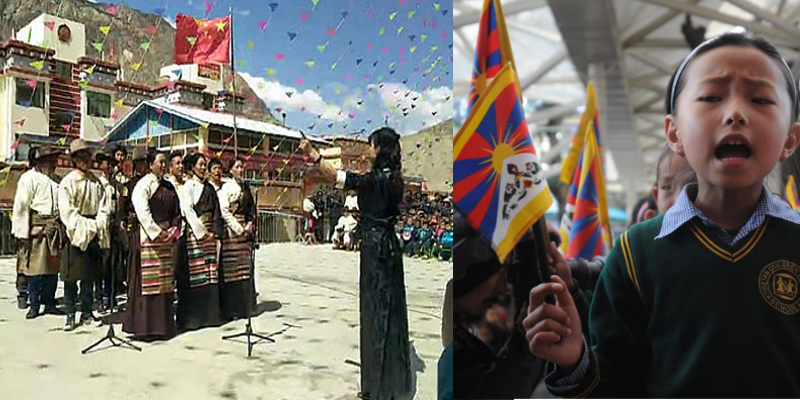As China continues to gain in stature and power the world seems to accept its narrative more and more no matter how much it continues to suppress the ethnic minorities living within its vast borders. The world media should understand that the very ‘Peaceful Rise’ of China which is anything but ‘peaceful’ threatens the Tibetan culture and its distinct identity.
Tibet’s borders with Chinese province Yunan and South Asia give Tibet a special place in Chinese Developmental Economics. Both the regions ( Yunan and South Asia ) are considered developing and present opportunities for trade expansion.
China is eager to reduce the gap between its coastal regions and inner, southern region. Chinese scholars feel that the differences in development of Tibet and its richer provinces may accentuate the nationalistic feelings in Tibetans. Many have broadly hinted that Tibetans are not open to development. The reality is they are not ready for Chinese model of development.
China’s strict policies make it very difficult to find whether Tibetan’s opinion regarding this ambitious infrastructure projects have been taken on board.
If the reports/accounts of fortunate few foreigners who travelled to Tibet are to be believed then Tibet’s culture is undergoing a change that is eroding its traditional values of “less is more”. Income of an average Tibetan has increased and consumerism has
made its way to Tibetan life and deepening its roots. While it may not be wrong to catch up with the world but it may also be checked for erosion of traditions.
China is even trying to project its soft power using Tibetan Buddhism and its rising popularity. Tibet’s identity as a unique culture is gravely threatened by Chinese attempts to project it as a sub-culture within Chinese civilization.
There is a growing sense of identity crisis among the younger generation and the older ones are alarmed by it. The world community shall ask Chinese for more access to Tibet to ascertain the ground situation and granting a special status to Tibetan Buddhism as intangible heritage of the world must be considered. It is also time that the Tibetans in the diaspora must start to gather support for greater access to the world media in Tibet.
Photo: Tibetans forced to sing songs praising China in Tibet on the right, a Tibetan girl raising Tibetan flag in exile on the left

